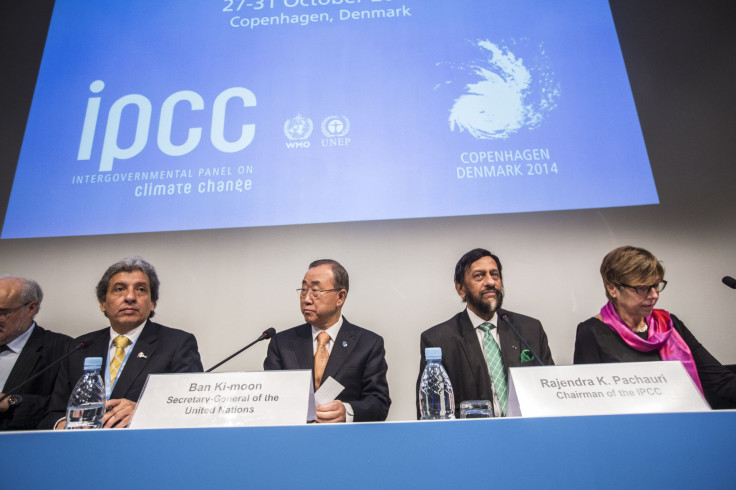UN Climate Change Report 2014: The End Of The IPCC?

The Intergovernmental Panel on Climate Change, IPCC, has been a leading voice in discussions about global warming since the panel was formed 26 years ago, and it has devoted countless hours and resources to understanding the planet’s complex and ever-changing environment. Now, the future of the United Nations' leading climate body is uncertain, as experts wonder whether the panel’s merits outweigh its shortcomings.
The panel has had its issues, not least among them a “cumbersome approval process,” Michael Oppenheimer, a Princeton University professor and lead author of the of the second part of the agency’s most recent climate change report, told the Associated Press. It takes the agency a lot of time and manpower to assemble its reports (five in all), including using “scientists who otherwise would be doing research,” he said. Scientists who contribute to the IPCC climate assessment reports often have to put their own projects on hold and are not compensated for their work with the agency. “You have to ask yourself: Is that the best way they should be spending their time?” Oppenheimer asked.
The panel has also been criticized for delivering information that was already known by the time they announced it. Early deadlines for submitting research to the IPCC’s climate reports often limit the agency from including the latest developments in climate science. "Something needs to change as these reports are biased and out-of-date,” John Christy, a climate scientist at the University of Alabama in Huntsville and former IPCC author, told the AP.
On Sunday, the IPCC released its most comprehensive report yet on climate change. The main takeaway: Global warming is almost certainly manmade, and mitigating it may require reducing greenhouse gas emissions to zero by 2100. The painstaking study, the agency’s fifth since 1988, was six years in the making and included the work of about 4,000 authors, reviewers and contributors and about 30,000 climate studies, according to the AP. But many of the claims made in the latest IPCC report are nearly verbatim identical to ones included in its 1990 report.
Kaisa Kosenen, a climate policy adviser at Greenpeace, said that while the world “need[s] a process like this in the future,” the operation could use some streamlining. “I do think that there would be value perhaps for the IPCC ... to do also shorter, very focused reports on certain specific issues that are advancing very fast,” she said.
© Copyright IBTimes 2025. All rights reserved.






















